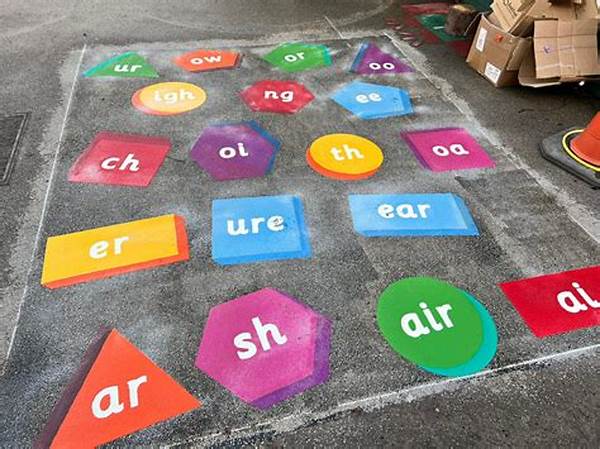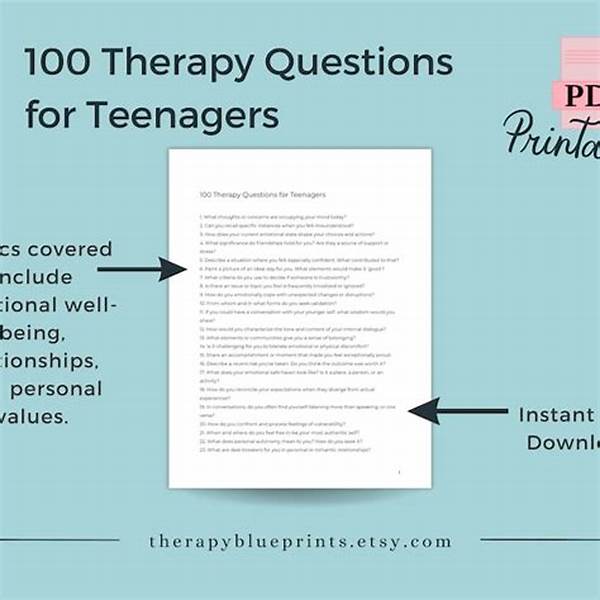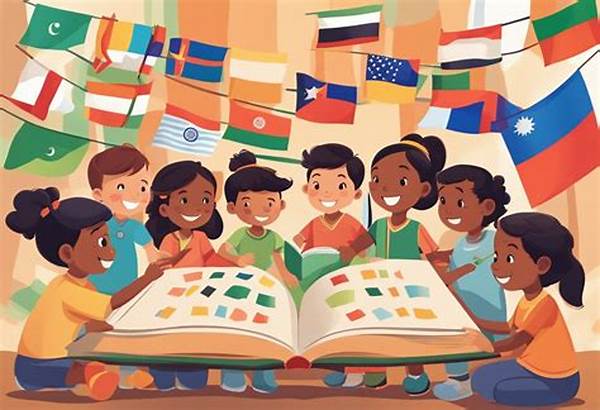Once upon a time, in a small, bustling town filled with curious kids and eager parents, there was a quaint little school known for its trailblazing teaching methods. The teachers in this school had one singular mission: to make learning to read an unforgettable adventure. Armed with colorful flashcards and catchy songs, they began the joyous journey of enhancing phonics in early education, each day unlocking the magical world of words for their young learners. It wasn’t just education; it was an enchanting expedition where every sound was a stepping stone to greater knowledge.
Read Now : Comprehensive Book Club Inquiry Packs
The Magic of Sound: Why Phonics Matters
Alright, let’s spill the tea on why phonics is so lit in early education. Imagine kiddos piecing together sounds like a DJ mixing tracks at a festival. That’s the vibe when enhancing phonics in early education. It’s all about that eureka moment when kids hear the sounds click! Phonics is the soundtrack of literacy, man. Without it, reading could feel like trying to solve a cryptic crossword without clues! As kids groove to the rhythm of sound, phonics gives them the tools to decode words, making reading as exciting as unwrapping a mystery present. It’s not just education—it’s empowerment, giving every little learner the confidence to slay the reading game.
When these kiddos get the hang of it, you see it in their eyes—a spark, a flame! They’re not just sounding out words; they’re cracking codes and feeling like little superheroes. And in enhancing phonics in early education, we’re not just teaching reading. Nah, we’re crafting future leaders, problem solvers, and creative thinkers. Who knew a few sounds could pack such a punch, right? It’s that blend of fun and foundational skills that lights up their path and leaves an indelible impression on their reading journey.
Phonics Rocks: Breaking It Down
1. What’s up with phonics? It’s the real MVP in reading, for sure. Enhancing phonics in early education is like unleashing the ultimate cheat code for budding bookworms.
2. No cap, it’s hella cool how phonics connects sounds and letters. Kids be mastering literacy like pros with this foundational skill.
3. It’s all vibes when phonics makes tricky words approachable. Enhancing phonics in early education gives kids solid street cred in reading.
4. Phonics low-key be the BFF of teachers wanting their students to succeed. Educators know what’s up when they focus on enhancing phonics in early education.
5. Enhancing phonics in early education might just be the GOAT in teaching methods. Limitless potential unleashed through sounds and letters—mind-blowing stuff!
The Buzz Around Phonics
So, let’s talk shop, folks. Phonics ain’t just any old teaching gig; it’s like hitting the jackpot in the realm of learning fundamentals. For real, enhancing phonics in early education is like offering the golden ticket to every kid. The blend of sounds, letters, and that magical “aha!” moment—it’s like watching fireworks light up a dark sky. And what’s cooler than seeing a tiny human proudly read their first big word? Nothing, I reckon.
In schools where phonics struts its stuff, classrooms are transformed into bustling hubs of activity and exploration. Teachers become maestros, conducting symphonies of sounds as kids jump in to create their tunes. Enhancing phonics in early education is not just a bullet point in a curriculum—it’s a movement, stylishly changing the game one letter sound at a time. Kids morph into curious explorers, confidently navigating the wild frontiers of language. It’s a vibe, and it’s contagious.
Read Now : Building Speech Skills With Creativity.
Why Phonics? Let’s Dive Deeper
To all the doubters out there, lemme tell you why enhancing phonics in early education is the shiznit. It’s the cornerstone of literacy, giving students the swagger they need to face any reading challenge. Forget about squinting at texts like they’re hieroglyphics; phonics hands pupils the secret decoder ring. And when these young guns nail it, their faces light up like Christmas morning. It’s more than just sounds; it’s about opening a lifetime of doors through the simple act of reading.
Teachers flipping the script with phonics are the unsung heroes, guiding young minds into becoming savvy readers. Each sound mastered is a victory worth celebrating; each word decoded is a step closer to unleashing their full potential. Enhancing phonics in early education schools isn’t just a buzzword; it’s a revolution for helping kids read with confidence and creativity. So, swing by a class sometime, and you might just witness the next reading superstar in the making.
The Phonics Phenomenon
Alright, real talk: when it comes to enhancing phonics in early education, we’re not just talking about a classroom gimmick. It’s a whole vibe, changing the landscape of how kids learn to read. Think of phonics like that underrated band that suddenly drops a hit song and blows up everywhere. Once kids start getting into phonics, it’s wild how fast they pick up reading skills. It’s a legit thrill ride seeing them piece together sounds, crack open books, and surf through pages like tiny pros.
In these lively phonics-fueled classrooms, it’s not just about learning; it’s about lighting up young imaginations. Teachers orchestrate dynamic lessons around phonics, turning reluctant readers into skilled linguists. Enhancing phonics in early education means inviting each student to unlock the tonal treasures of language. You’re watching the growth of confidence right before your eyes, and there’s nothing more rewarding. Kids strut out of class, heads high with newfound skills, ready to take on the world of words.
Slangin’ in School: The Informal Road
Rolling back the clock to those unforgettable days when learning was an epic saga, enhancing phonics in early education was always at the heart of it. Teachers wore many hats—cheerleaders, directors, and sages. Hallways echoed with the spontaneous melodies of young voices bridging the gap from babbling tots to talkative tweens. Slang was the seasoning, the spice that kept education relatable and intriguing.
As these youngsters embraced their roles as avid wordsmiths, enhancing phonics in early education added that valuable street smarts to their literary toolkit. Kids didn’t just learn; they lived it, building their own colorful lexicons as they grew. The journey wasn’t always easy, but it was absolutely transformative. That’s the essence of phonics and everyday lingo: empowering each child with the tools to navigate a world rich with language, creativity soaring sky-high.




